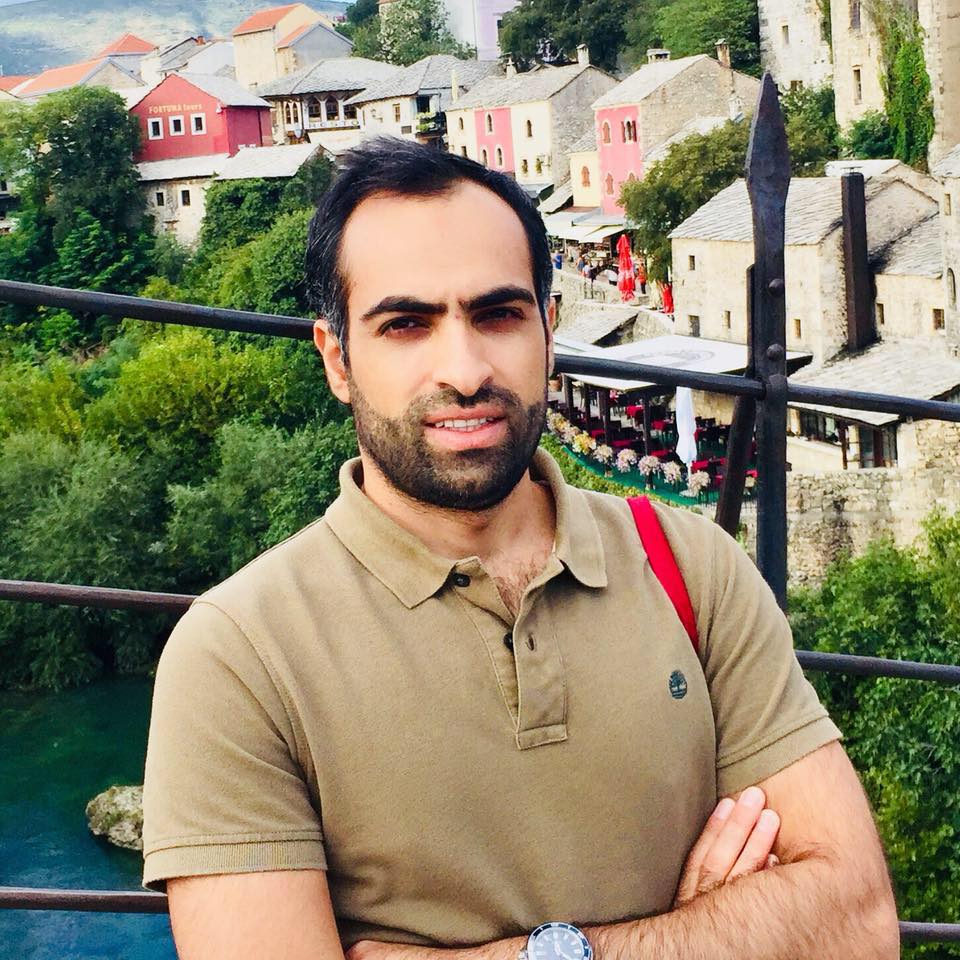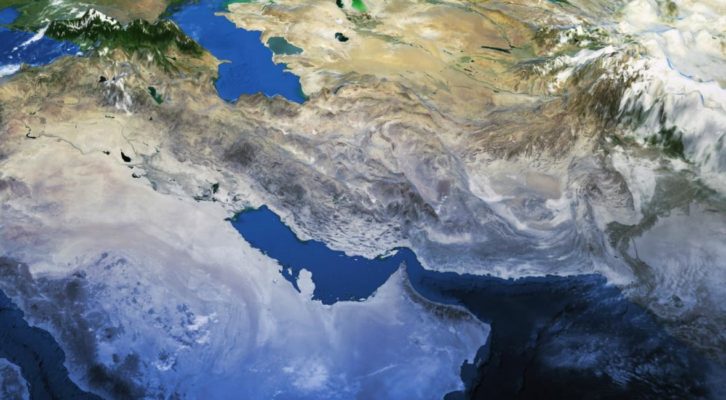An Interview with Palestinian political activist and young scholar Hadi Abdelhadi Alijla on Palestine and the region.
-How do you evaluate the current rapprochement between Fateh and Hamas? Is it doomed to failure like the previous agreements or this time both sides have the will to do so?
Well, after 10 years of division, I guess there is a change in the regional and international dynamics that make the current agreement a possible success. First, the new Hamas leader from Gaza who never been in politics and was not engaged in 2007 conflict between Hamas and Fateh. Second, the approach between Hamas and Mohamed Dahlan, a Fateh strongman of Gaza who lives in exile in Abu Dhabi angered Abbas, who put all his weight to halt the agreement between Hamas and Dahlan (Egypt brokered the meeting between Dahlan and Hamas). Third, Hamas felt the pressure on the Palestinian population in Gaza. People are hopeless and Hamas is doing nothing. Hamas lost its popular base in Gaza. After 10 years of ruling the Gaza Strip: no electricity (4 hours every 24 hours), no drinkable water, Gaza still under siege, no hope for Gazans, high unemployment rate, high suicide rate, especially in the last year, most of the youth want to emigrate, and more importantly people are against any war. They had enough in 2008, 2012, and 2014. Hamas analyzed this message very well. Fourth, Hamas knew that they have no future in the region as a branch of the Muslim Brotherhood. They clinically separated themselves from MB by issuing the new document (Hamas document of general principles and policies). They want to be part of the general fabric of the region. They lost all their allies, especially after they left Syria. Now, they are trying to create a balance and want the PA to be back to Gaza. Fifth, the international dynamic has changed. With the rise of Trump, ISIS, and the Assad winning the war, plus the Turkish failed coup and the Gulf crisis, accelerated the agreement.
However, this agreement needs regional power guarantees. So far, Egypt is putting all its weight behind the agreement. It will be difficult, but not impossible. Any change in the regional dynamics may break the agreement. It will go slowly, very unhurriedly, but it will work eventually if the current dynamics remain as it is. The last week of October, Israel killed eight Palestinians from Islamic Jihad. Egyptian intelligence arrived too Gaza within few hours to save the calm between Gaza and the occupation. Furthermore, Hamas has one option, reconciliation. Moreover, 1st of November, Hamas handed Rafah and Erez crossings to the Palestinian Authority. This was a read line. For Hamas, and we can trace their speeches and statement, Rafah crossing was something they would never hand to Fatah. They just did. They have no other options available anymore. The other option is to lose, Everything. Governing Gaza cornered them in a place they cannot get closer to Egypt, Iran or Syria or even having a sustainable ally. They were losing Palestinian’s support in Gaza too.
-During our meeting, you have mentioned about Israel being “apartheid regime” something that even UN reports mentioned. Can you provide us with some examples of how Israel is segregating Palestinians and Arabs both within the 1948 and Palestinian territories (West Bank/Gaza)?
You have dozens of laws that Israel’s use against Arabs inside Israel and also Palestinians in Gaza Strip and the West Bank. Most-recent report by ESCWA called Israel has institutionalized apartheid through its policies. From identity colors (each category has different ID color in Occupied Palestine and Palestinians inside Israel ), land ownership laws, restriction of movement’s laws, right of speech is treated differently for Palestinians (Israeli citizens or from Gaza or west bank) from Jews, such as arrest and imprisonment without charge or trial, siege over the Gaza Strip, military courts in West Bank for Palestinians while not for settlers, distinct roads for Jew than Palestinian Arabs…it is a very long list, we can go from now until tomorrow. In some cases, two lovers from different areas need a military permission to visit each other or to marry. In East Jerusalem, they wait for years to get such permission.
-Is there a hope for solution or peace in Palestine? Do you believe the idea of a one-state solution is still valid? In case the two-state proposal is accepted (even though settlements are being expanded) what will be the future of the Palestinian refugees and UN resolution 194 (December 1948) that called for the return of refugees and their compensation?
I do not think so. It is very difficult to achieve peace with Netanyahu and his government. Another thing is that there was never a peace process. There was a process of negotiations and time-wasting. Even the labor party in Israel has become more right than ever. The Israeli population is becoming more right, voting for Netanyahu, Lieberman, and Bennet. How can you convince such people on the necessity of making peace with the Palestinians? How can you convince them that more than 5 million Palestinians are refugees because they had to be in historic Palestine? Or how we can convince 500000 settlers in the West Bank that they are occupying other people land according to all international laws of UN and the ethical law of human beings? I see a tragic situation, and the status-quo will be the best option for all parties unless regional settlements occur. For me, two states solution is impossible. Nature and geography, the economy, the resources and a 70 years-old occupation have installed and changed the land, the borders, the resources, and so many things that make a two-state solution impracticable. For refugees, they have to return according to UN resolution 194. Moreover, 242, and 338 resolutions. If they chose not to return and be compensated, they can receive compensation as an individual but the historical and public right remain as it is. The Palestinians are not going to accept anything that may put their historical narrative in doubt. For a one-state solution, I do believe it is valid, and possible if Israel wants that, which is impossible for them to accept it. If you steal one Pizza and enjoying it alone on the beach and fully protected by a huge military, why to go and ask the owner to share his own pizza that you already took it by force?

-Coming to the region. How do you evaluate the post-Arab spring crises the region started to face from Iraq to Libya? Do you think soon a political settlement is coming to Syria?
Let me start from Syria. In Syria, things are going very well for the Syrian government and the regime. They are enjoying complete support from Russia and Iran. The Arab Spring has turned into a nightmare for millions of people. I am not saying the protesters and youth’ demands are not legitimate, but what I am saying is their revolutions have been hijacked by regional powers that were shaking from the fear that the Arab Spring will reach them. Then extremists who were funded by these powers hijacked the achievements of the uprisings. Libya will take at least a decade to stop the violence. The tribal system in Libya is very complex and needs huge and lengthy efforts and negotiations to engage everyone in the new Libya. However, Qaddafi’s son return to politics is highly possible and will change the political dynamics in Libya very fast. Of course, that will be with support from Arabic countries. For Syria, we are already seeing a political settlement there. The local councils are managing things well, in cooperation with the Russians (who have connections with everyone nowadays). Russians actually work as peace brokers and attackers at the same time. They have the power to impose things on the ground, especially in coordination with the Turks.
-What’s your opinion on the referendum that took place in Northern Iraq? Do Kurds have the ability to build a state of their own given the current crisis between Baghdad and Erbil and Iraqi Kurdistan’s neighbors?
The Kurds deserve their own state. They have been betrayed by history and global powers for centuries. It is ethical to support their rights to have their own state. However, they have chosen the wrong time to run a referendum. I think it is a political maneuver to gain political power locally among Kurds but also from Baghdad, which will not work. The Kurds themselves are divided over the referendum. Even the Gorran movement called Barazani to step down. KDP accused PUK of betraying them in Kirkuk. The referendum aimed at getting more power, but it led to a tremendous setback to Kurds in Iraq. They are even angrier and hopeless because they were convinced that they will soon have their own state, but suddenly, they lost Kirkuk. They lost many lands, and they are besieged by Turkey, Iran, and Iraq. Even the United States and EU advised them not to take that step, but KRG did and results where they were left alone for their fate by everyone, including who supported them in the beginning. I am sure situation will end very soon, and KRI will not get independence, and this could be a way to new Kurdistan, more accountability, and transparency, balances, and checks, etc.
-Last but not least, what concerns me in the region is the dismantlement of centralized states (Iraq, Sudan, Yemen, Somalia, Libya…) and the emergence of weak nation states or communities trying to gain power on behalf of the other. Do you think there is a clarification on this issue can federalism or confederalism be a solution to stop the sectarian and ethnic bloodshed?
Well, you are already referring to weak and failed states. Central states are already weak, and informal actors are the real authority. In Sudan, for example, they lost the south. Now, we are seeing a new failed state called South Sudan. If you refer to communities by ethnic groups or religious groups to have power over certain territories, then this what we have been seeing. Somalia has been like this since the 1990s. Sudan’s civil war initiated a new dynamics that ended with separation. Libya’s tribes are controlling their own territories. Yemen has been exercising a tribal system, with an exception of the south which had a very good central socialist government back in time. It is not about federalism, rather than about the violence in these territories that fueled in many cases by foreign or regional powers. The issue is that they want a state that protects its citizen in an equal manner. If that happens or policies, regulations, and constitutions are designed to serve this purpose, then any system type will be fine. The factor here is equality in everything. Federalism will not be a solution if corruption persists, for example. In most of the cases, you provided. Embezzlement and corruption are led by the elites or the leaders. I suppose they are trying to maximize their power and profit through political instability and violence in many cases. One more thing, the bloodshed that happens in the region is not a result of sectarianism. No. It is portrayed as sectarianism, but in reality, is a purely political conflict that is galvanized by sectarian terms or sectaries is used to justify engagement of other nations of actors or even justify the continuity of the bloodshed.
The interview was conducted by Yeghia Tashjian
Hadi Abdelhadi Alijla has graduated from the University of Milan. In April 2014, he was appointed as the director of Institute for Middle East Studies, Canada (IMESC), and since 2013, he has been a part of Varieties of Democracy Institute (V-Dem) at Gothenburg University, Sweden. Starting from 2016, h joined a research project that examines the effect of livelihood projects and activities on social cohesion between Syrian refugees and their host communities in Lebanon, Turkey and Kurdistan Region of Iraq.







